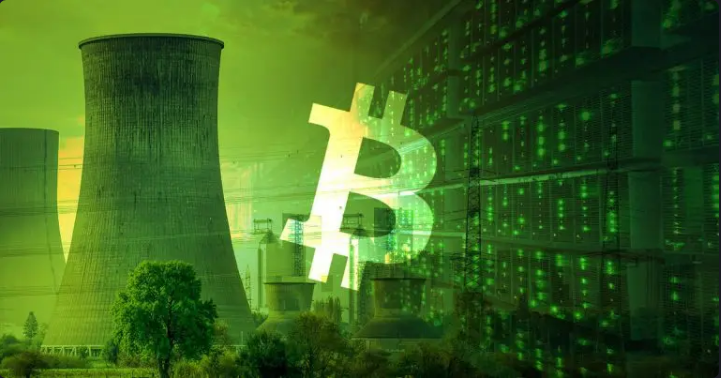
The World Bank recently released a report titled “Gas Flaring: A Burning Issue for the Climate and Development” that analyzes the global trends and impacts of gas flaring, a practice of burning off excess natural gas during oil production. The report highlights the environmental, economic and social costs of gas flaring, and proposes solutions to reduce it. The World Bank acknowledges the beneficial environmental impact of Bitcoin mining in relation to gas flaring.

According to the report, Bitcoin mining can provide a profitable alternative use for the otherwise wasted gas, by converting it into electricity to power the mining operations. This can reduce the amount of gas flared, and thus lower the environmental footprint of the oil industry.
The report also highlights the potential economic and social benefits of Bitcoin mining for local communities in oil-producing regions, such as creating jobs, increasing income, and fostering innovation. The report cites several examples of successful projects that have implemented this model, such as Upstream Data in Canada, Crusoe Energy Systems in the US, and BitRiver in Russia.
Register for Tekedia Mini-MBA edition 19 (Feb 9 – May 2, 2026): big discounts for early bird.
Tekedia AI in Business Masterclass opens registrations.
Join Tekedia Capital Syndicate and co-invest in great global startups.
Register for Tekedia AI Lab: From Technical Design to Deployment (next edition begins Jan 24 2026).
These projects have demonstrated that Bitcoin mining can be a viable solution for utilizing stranded gas resources, while also supporting the development of the cryptocurrency sector.
One of the most interesting aspects of the report is the frequent mention of Bitcoin, the leading cryptocurrency that uses a proof-of-work consensus mechanism to secure its network. The report acknowledges that Bitcoin provides a powerful incentive structure for using stranded or wasted gas as a source of energy for mining, thus reducing emissions and generating income for oil producers.
According to the report, Bitcoin mining could potentially consume up to 12 billion cubic meters of natural gas per year, equivalent to about 23% of the global gas flaring volume in 2020. This would not only reduce greenhouse gas emissions by about 60 million tons of CO2 equivalent, but also create an additional revenue stream of about $4.5 billion for the oil and gas sector.
The report also recognizes that Bitcoin mining can support renewable energy development, by providing a flexible and profitable outlet for excess electricity generation. This could help overcome some of the challenges of integrating variable renewable sources, such as solar and wind, into the grid.
The World Bank’s report is a significant acknowledgement of the role that Bitcoin can play in tackling climate change and promoting sustainable development. It shows that Bitcoin is not a wasteful or harmful activity, but rather a catalyst for innovation and efficiency in the energy sector. By aligning incentives with environmental and social goals, Bitcoin can create a win-win situation for both the planet and its people.
The report concludes that Bitcoin mining can offer a win-win scenario for both the oil industry and the environment, by turning a waste product into a valuable asset. The report also suggests that policymakers and regulators should encourage and facilitate this practice, by providing clear and consistent rules, incentives, and infrastructure.
The report states that “Bitcoin mining can be an effective tool for mitigating the environmental impact of gas flaring and enhancing the sustainability of the oil and gas sector.”



